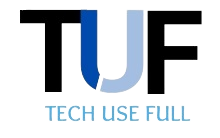Platform extensibility refers to the capability of a software or technology platform to be easily customized and expanded upon to meet specific business needs.
In today’s fast-paced and competitive business landscape, organizations require adaptable solutions that can evolve alongside their changing requirements.
Platform extensibility plays a crucial role in enabling businesses to tailor their operations, enhance functionality, and optimize workflows.
By leveraging an extensible platform, businesses can integrate third-party tools and services, streamline processes, and foster collaboration and innovation.
This article aims to explore the benefits of platform extensibility for businesses, highlighting its importance in driving efficiency, productivity, and ultimately, success.
Also give a view to other side of the coin to know business success secrets.
What is Platform Extensibility?
Platform extensibility refers to the ability of a software or technology platform to be easily customized and expanded upon to meet specific business needs. It allows businesses to add new features, functionalities, and integrations to the platform, tailoring it to their unique requirements.
In the business context, platform extensibility is of significant importance as it enables organizations to adapt and scale their operations efficiently. By customizing the platform to their specific workflows and processes, businesses can streamline their operations, increase productivity, and improve overall efficiency.
Platform extensibility differs from a closed or rigid platform in that a closed platform has limited flexibility and restricts customization options. In contrast, an extensible platform provides businesses with the freedom to modify and enhance the platform according to their needs.
It allows for seamless integration with third-party tools, plugins, and extensions, enabling businesses to leverage additional functionalities and resources.
WordPress and Salesforce are well-known examples of extensible platforms. WordPress, a popular content management system, offers a wide range of plugins and themes that allow users to customize their websites’ appearance and functionality.
Salesforce, a leading customer relationship management (CRM) platform, provides an extensive ecosystem of apps and integrations that businesses can use to extend the capabilities of their CRM system.
Customization and Adaptability
Platform extensibility allows businesses to customize their operations by providing them with the flexibility to modify and enhance the platform according to their specific needs. With an extensible platform, businesses can integrate third-party tools, plugins, and extensions that align with their workflows and processes.
This customization enables businesses to optimize their operations, streamline workflows, and improve overall efficiency.
Tailoring a platform to specific business needs offers several benefits.
- Firstly, it allows businesses to remove unnecessary features or functionalities that may not be relevant to their operations, reducing clutter and improving user experience.
- Secondly, businesses can add or enhance features that are critical to their unique requirements, enabling them to perform tasks more effectively.
Customization helps businesses align the platform with their branding and visual identity, ensuring consistency across their operations. An extensible platform can adapt to changing requirements in various ways.
- Businesses can easily add or remove integrations and extensions as their needs evolve. This adaptability enables them to stay agile and responsive to market changes.
- An extensible platform allows for scalability, meaning businesses can expand their operations without having to switch to a completely new system. This saves time, resources, and minimizes disruptions.
- An extensible platform often receives updates and improvements from the provider or community, ensuring that businesses have access to the latest features and technologies.
Enhancing Functionality and Integration
There are several common methods for integrating third-party tools and services into an extensible platform. Application Programming Interfaces (APIs) play a crucial role in facilitating this integration.
APIs provide a set of rules and protocols that enable different software systems to communicate and share data with each other. Many platforms provide well-documented APIs that allow developers to build custom integrations and connect external tools seamlessly.
Another method is through plugins or extensions, which are pre-built modules specifically designed to integrate with the platform. These plugins expand the functionality of the platform by adding new features or integrating with external systems.
Integrating external tools into an extensible platform offers numerous advantages. Firstly, it allows businesses to leverage specialized tools that are best suited for specific tasks, enhancing the overall capabilities of their systems.
This can lead to increased efficiency and productivity. Secondly, integration enables seamless data sharing between different systems, eliminating the need for manual data entry or duplicate records. This promotes data accuracy and consistency. Additionally, integrating external tools into an extensible platform fosters collaboration and innovation by providing access to a wider range of resources and functionalities.
It allows businesses to stay up-to-date with the latest technologies and leverage industry-standard tools without the need for extensive development or customization efforts.
Streamlining Workflows and Efficiency
Plugins and extensions play a crucial role in automating repetitive tasks within an extensible platform. These add-ons can be developed or sourced from third-party providers and integrated seamlessly into the platform. They enable businesses to automate processes such as data entry, report generation, and notifications, saving time and reducing the risk of human error.
For example, a customer relationship management (CRM) platform with an extensible architecture can incorporate plugins that automatically assign leads, send follow-up emails, and generate reports, streamlining the sales process.
An extensible platform optimizes business processes and increases efficiency in several ways. It eliminates the need for manual data transfer and duplication by integrating various systems and tools. This reduces the chances of errors and saves time spent on manual data entry. Automation through plugins and extensions enables businesses to standardize and streamline tasks, ensuring consistency in processes and outcomes. This reduces variability and improves overall efficiency.
An extensible platform allows for the integration of specialized tools and services that cater to specific business needs. This optimization enables businesses to leverage industry-standard tools without the need for separate systems or complex integrations. It also provides scalability, allowing businesses to handle increased workloads without sacrificing efficiency.
Collaboration and Innovation
An extensible platform facilitates collaboration within a business by providing a central hub where employees can seamlessly work together, share information, and collaborate on projects. It offers features such as real-time document editing, shared calendars, task management, and communication tools that enable teams to collaborate effectively.
Open APIs (Application Programming Interfaces) and developer ecosystems play a crucial role in driving innovation within an extensible platform. Open APIs allow developers to access and interact with the platform’s functionalities, enabling them to build custom integrations, plugins, and extensions.
This openness fosters a developer ecosystem where third-party developers can create innovative solutions that extend the platform’s capabilities. By encouraging collaboration and innovation through open APIs, businesses can tap into a wider pool of talent and ideas to drive continuous improvement.
There are several examples of successful collaborations and innovative solutions resulting from platform extensibility. One notable example is the integration of project management platforms with popular communication tools like Slack or Microsoft Teams.
This collaboration allows teams to receive real-time notifications, discuss tasks, share files, and update project status directly within their communication channels, streamlining workflows and enhancing collaboration.
Another example is the integration of e-commerce platforms with social media networks. This collaboration allows businesses to sell products directly on social media platforms, leveraging their large user base and engagement.
Customers can browse and purchase products without leaving the social media app, providing a seamless shopping experience and increasing sales opportunities.
In the software development industry, many companies use extensible platforms like GitHub to collaborate on code repositories. Developers can easily contribute to projects, track changes, and merge code seamlessly, fostering collaboration and accelerating the development process.
Cost Savings and Return on Investment (ROI)
Using an extensible platform can lead to potential cost savings for businesses. Here are a few ways in which an extensible platform can contribute to cost savings:
- Customization without extensive development: An extensible platform allows businesses to customize their systems without the need for extensive development efforts. By leveraging plugins, extensions, and integrations, businesses can tailor the platform to suit their specific needs. This eliminates the costs associated with building custom software from scratch and reduces the time required for development.
- Integration of third-party tools: Platform extensibility enables businesses to integrate third-party tools and services seamlessly. Instead of investing in the development of in-house solutions, businesses can leverage pre-built tools that are readily available in the market. This saves both time and money by avoiding the costs of developing, testing, and maintaining proprietary software.
- Automation of repetitive tasks: Plugins and extensions offered by an extensible platform can automate repetitive tasks, reducing the need for manual labor. This automation saves valuable employee time, allowing them to focus on more strategic and high-value activities. Additionally, it minimizes the chances of errors, leading to cost savings associated with error correction and rework.
Platform extensibility also reduces development and maintenance efforts, further contributing to cost savings. Here’s how:
- Simplified integration through APIs: Extensible platforms often provide open APIs that simplify the process of integrating external tools and services. These well-documented APIs enable developers to connect and communicate with the platform, reducing the time and effort required for integration. This streamlines the development process and accelerates time-to-market.
- Reusability of plugins and extensions: Once developed or sourced, plugins and extensions can be reused across multiple projects or instances of the platform. This reusability reduces the need for building custom features from scratch for each project, saving development time and effort. It also simplifies maintenance efforts as updates and enhancements can be applied to the reusable components, benefiting all instances.
Conclusion
In conclusion, platform extensibility offers significant benefits in terms of streamlining workflows, facilitating collaboration, driving innovation, and maximizing return on investment.
By customizing the platform to fit specific business needs and automating repetitive tasks through plugins and extensions, businesses can achieve increased efficiency and productivity.
The integration of open APIs and developer ecosystems fosters innovation by allowing third-party developers to create unique solutions that extend the platform’s capabilities. Successful collaborations and innovative solutions resulting from platform extensibility have revolutionized various industries, such as project management, e-commerce, and software development.
Moreover, the cost savings associated with using an extensible platform, along with reduced development and maintenance efforts, further contribute to its value proposition.
Overall, platform extensibility empowers businesses to optimize their processes, enhance collaboration, and drive growth in a rapidly evolving digital landscape.



